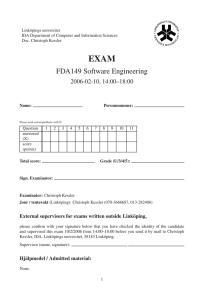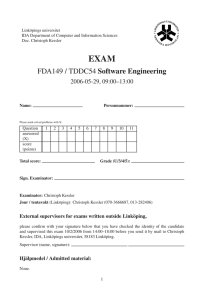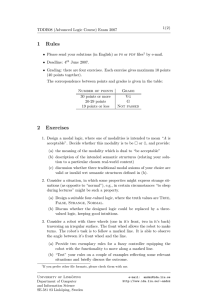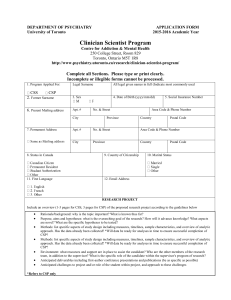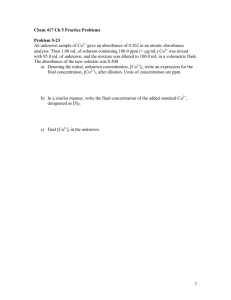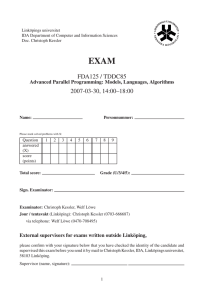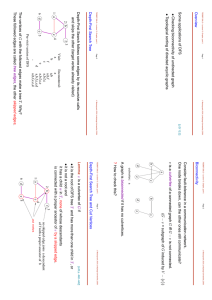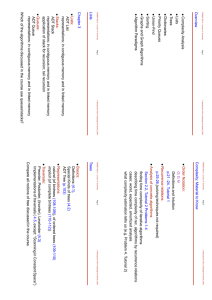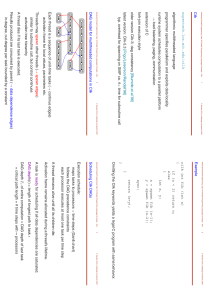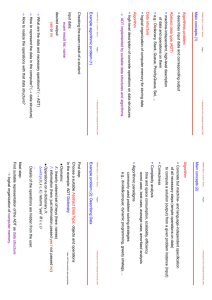Complexity Dichotomies for CSP-related Problems Gustav Nordh by
advertisement
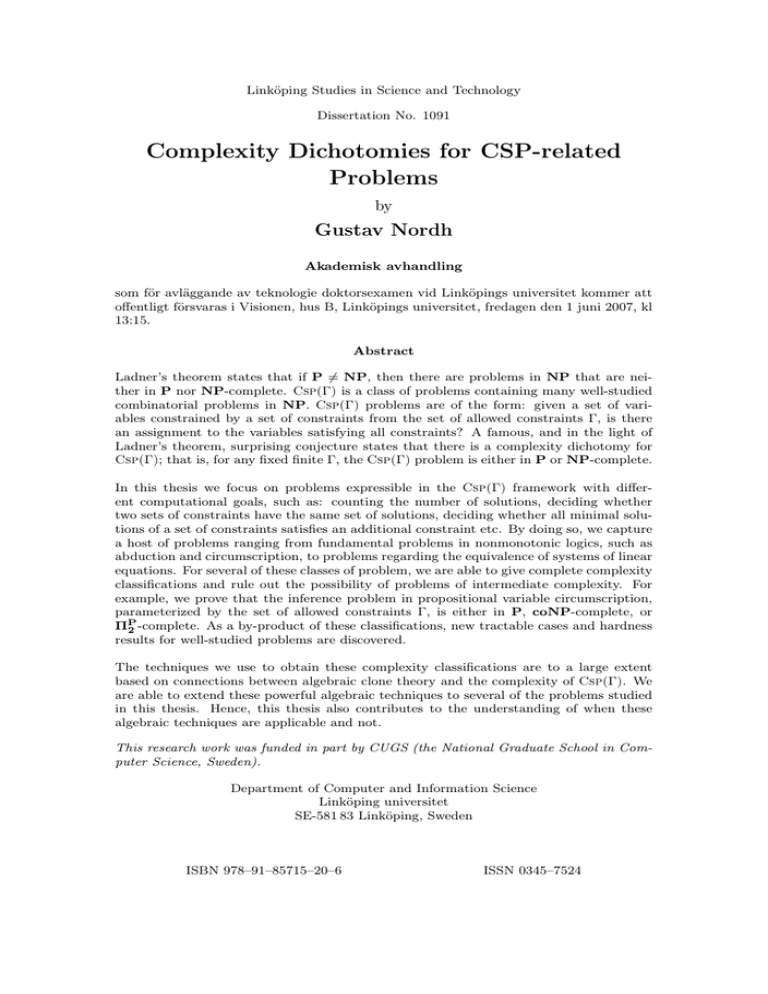
Linköping Studies in Science and Technology Dissertation No. 1091 Complexity Dichotomies for CSP-related Problems by Gustav Nordh Akademisk avhandling som för avläggande av teknologie doktorsexamen vid Linköpings universitet kommer att offentligt försvaras i Visionen, hus B, Linköpings universitet, fredagen den 1 juni 2007, kl 13:15. Abstract Ladner’s theorem states that if P 6= NP, then there are problems in NP that are neither in P nor NP-complete. Csp(Γ) is a class of problems containing many well-studied combinatorial problems in NP. Csp(Γ) problems are of the form: given a set of variables constrained by a set of constraints from the set of allowed constraints Γ, is there an assignment to the variables satisfying all constraints? A famous, and in the light of Ladner’s theorem, surprising conjecture states that there is a complexity dichotomy for Csp(Γ); that is, for any fixed finite Γ, the Csp(Γ) problem is either in P or NP-complete. In this thesis we focus on problems expressible in the Csp(Γ) framework with different computational goals, such as: counting the number of solutions, deciding whether two sets of constraints have the same set of solutions, deciding whether all minimal solutions of a set of constraints satisfies an additional constraint etc. By doing so, we capture a host of problems ranging from fundamental problems in nonmonotonic logics, such as abduction and circumscription, to problems regarding the equivalence of systems of linear equations. For several of these classes of problem, we are able to give complete complexity classifications and rule out the possibility of problems of intermediate complexity. For example, we prove that the inference problem in propositional variable circumscription, parameterized by the set of allowed constraints Γ, is either in P, coNP-complete, or ΠP 2 -complete. As a by-product of these classifications, new tractable cases and hardness results for well-studied problems are discovered. The techniques we use to obtain these complexity classifications are to a large extent based on connections between algebraic clone theory and the complexity of Csp(Γ). We are able to extend these powerful algebraic techniques to several of the problems studied in this thesis. Hence, this thesis also contributes to the understanding of when these algebraic techniques are applicable and not. This research work was funded in part by CUGS (the National Graduate School in Computer Science, Sweden). Department of Computer and Information Science Linköping universitet SE-581 83 Linköping, Sweden ISBN 978–91–85715–20–6 ISSN 0345–7524
